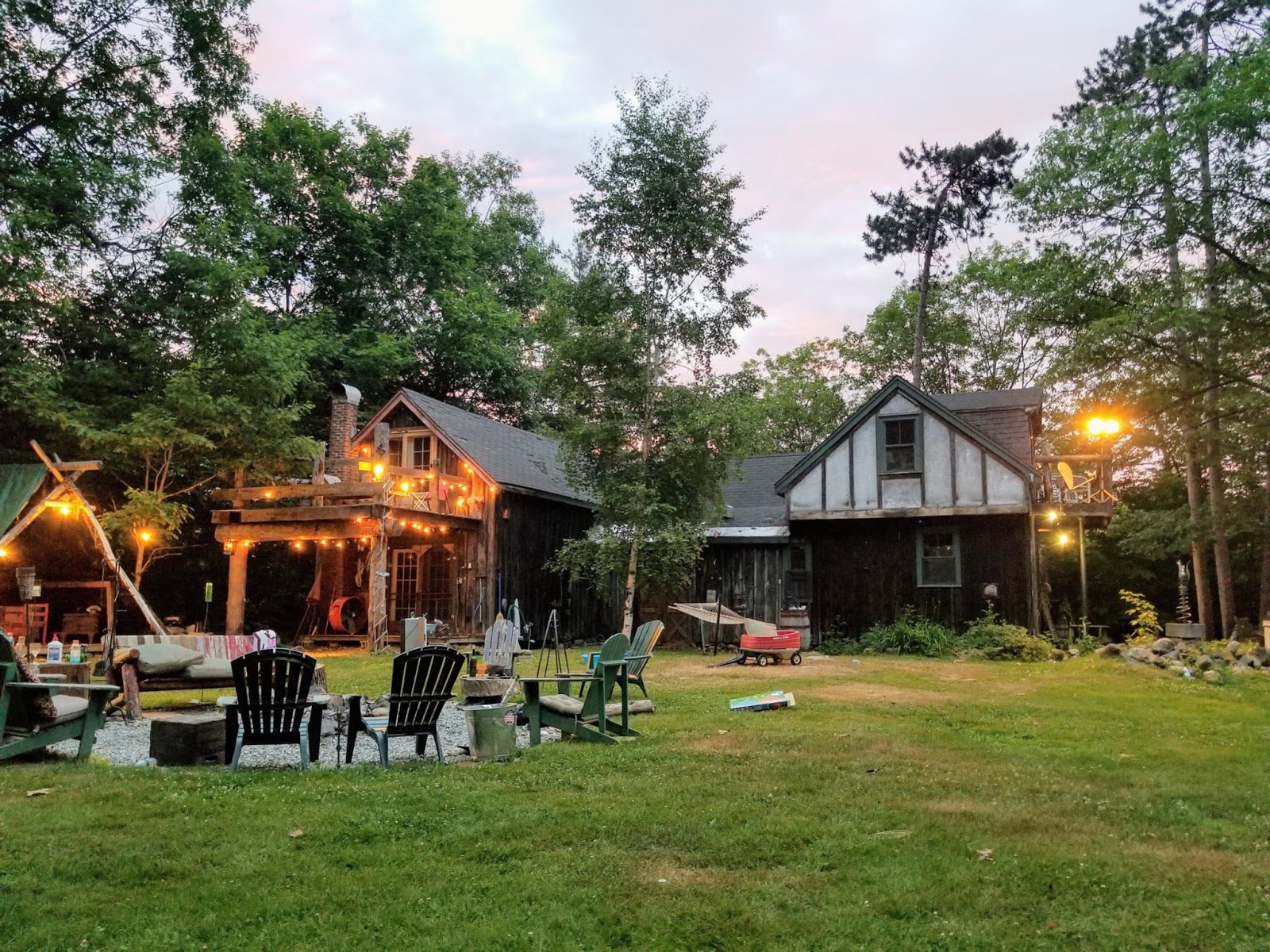The obsession for a greener lawn dates back centuries but was popularized by the 1925 novel The Great Gatsby, where protagonist Nick Carraway longs for the verdant, sweeping greenland of his elusive neighbor, Jay Gatsby. “We both looked at the grass—there was a sharp line where my ragged lawn ended and the darker, well-kept expanse of his began,” the literary classic reads.
The text, although fictional, articulates a strange American phenomenon: the health of our lawns is arbitrarily equated with our success.
This assumed correlation isn’t new, and in fact, it’s been the subject of scientific studies.
America is a lawn-loving country, and it’s not all superficial. Lawns, although certainly aesthetic, serve as a gathering place for family and friends. In the summer, they’re the setting for Wiffle ball, cookouts, and games of tag. Additionally, studies have shown that gardening and surrounding oneself with greenery have tangible health benefits, both mentally and physically. Yet, the obsession with lawns has sometimes led to damaging (and potentially dangerous) effects from heavy chemical usage when overly-manicuring. So, while Jay Gatsby may have had a luscious backyard, his well-kept grass probably wasn’t as good for East Egg as he thought it was.
Luckily, there are a few ways to make your lawn healthy and green without the harmful impact.
Eliminate Or Limit Fertilizer
Chemical-based fertilizers are frequently used to bump up the green factor of lawns. Unfortunately, the active ingredients in these fertilizers — namely nitrogen — are extremely harmful to the environment, but not in the way that you think.
A 2015 study by an Appalachian State University professor found that nitrogen-based fertilizers have a high likelihood of overuse in concentrated patches, leading to a toxic breakdown of the nitrogen which is then emitted into the air as nitrous oxide. The aforementioned byproduct is a greenhouse gas that is 300 times more potent than carbon dioxide.
Although nitrogen-based fertilizers are the backbone of highly groomed, pristine-looking lawns, if you’re aiming for a more eco-conscious option, try out fertilizers that are organic and chemical-free, or even a simple compost (see below)!
Pick A Sustainable Lawn Mower
Everyone knows that exhaust can be harmful to the air we breathe. While it’s not practical to entirely eliminate exhaust or exhaust-producing machines from our lives, each person can do their part by simply minimizing the number of gasoline-powered machines we use.
Using electric or low-emission lawn mowers like these will limit your carbon footprint. Of course, they are not practical in all scenarios, but your local hardware store specialists can help you choose an option that works best for you and your lawn.
Steer Clear Of Pesticides
In the same vein as nitrogen-based fertilizers, pesticides have become an overused component of lawncare with extremely concerning side effects. Studies have proven there is “overwhelming evidence that some of these chemicals do pose a potential risk to humans and other life forms and unwanted side effects to the environment.”
Of these effects, the exposure to their harmful chemicals during application have led to disease. Rain runoff following application and possible over-application can even contaminate waterways.
As an alternative to these harmful products, organic pesticides, herbicides, and insecticides are now widely available and can be purchased online as an excellent option for keeping your lawn green and healthy while looking out for the Earth.
Leverage Your Compost
Composting of biodegradable food waste from your kitchen can be done indoors or outdoors with a variety of new composting containers readily available for smaller homes or apartments without outdoor space.
When your compost begins to decompose, microorganisms consume the waste, recycling the organic matter and turning it into a fabulous organic fertilizer.
By using this process and investing in a compost tin or bin (or using a container you have at home that is airtight), you’ll be able to create an eco-friendly fertilizer you can then apply to your lawn.
A recent study showed that applying domestic compost improved lawn health in every experiment.
Consider Artificial Grass
If you have a small yard that you struggle to grow grass on due to the conditions, artificial grass may be the answer. Faux greenery has garnered acclaim in some states because it never requires watering — a huge plus if you live in an arid environment with water limitations or shortages.
As with anything, there are pros and cons. Low upkeep needs and sustainability are its greatest features, but certain companies are more eco-friendly in production than others. If you do consider this option (and by the way, it’s amazing what having a green lawn year-round will do for your home), be sure to speak with your local garden or hardware store about sustainable manufacturers.





